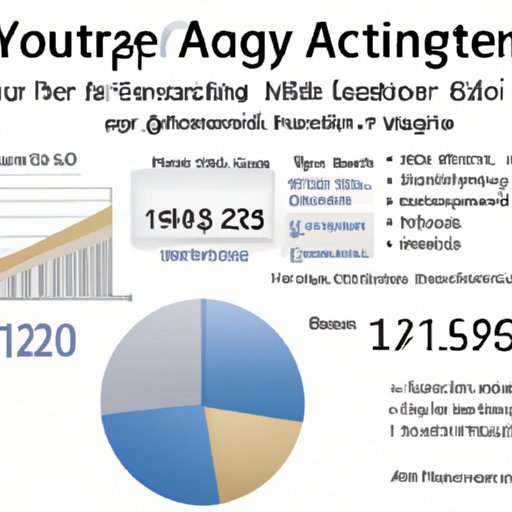Introduction
One of the most common questions people ask is “what age will I die?” While it may seem impossible to predict the exact age at which someone will die, science can provide us with some clues. In this article, we’ll explore the science behind life expectancy and mortality rates, and how these can be used to calculate a person’s likely age of death. We’ll also examine the role that genetics, lifestyle choices, diet and exercise have on lifespan.
Analyzing Life Expectancy and Mortality Rates to Calculate Your Likely Age of Death
Life expectancy is defined as the average number of years a person is expected to live, while mortality rate is the number of deaths in a population over a given period of time. By analyzing life expectancy and mortality rates, scientists can calculate a person’s likely age of death.
The World Health Organization (WHO) estimates that globally, life expectancy has increased by 5.5 years since 2000. This increase is largely due to a decline in mortality rates, including a decrease in child mortality and progress in tackling communicable diseases. However, there are still significant differences in life expectancy between countries and regions.
In addition to global trends, there are several factors that can affect an individual’s life expectancy and mortality rate, such as age, gender, lifestyle choices, genetic makeup, and access to healthcare. All of these factors play a role in determining a person’s likely age of death.

Exploring the Impact of Genetics and Lifestyle Choices on Lifespan
Genetics plays an important role in determining a person’s life expectancy. Studies have found that genes can account for up to 25% of the variation in life expectancy. For example, a study conducted by the National Institutes of Health found that people with certain genetic variants had a longer lifespan than those without them.
In addition to genetics, lifestyle choices can also have a major impact on lifespan. Research has shown that smoking, drinking alcohol, being overweight or obese, and having poor nutrition can all increase the risk of premature death. On the other hand, regular physical activity, healthy eating, and not smoking can help to extend lifespan.

Examining Current Research on Aging and Predictions for Average Lifespans
Current research on aging has revealed a number of insights into how our bodies age and why some people live longer than others. For example, researchers have identified certain biomarkers that are associated with aging, such as telomere length and epigenetic changes. These markers can provide clues about how long a person is likely to live.
Based on current research, some experts have predicted that average lifespans could increase significantly in the future. For example, a study published in Science Advances estimated that the average human lifespan could reach 90 years by 2070. However, these predictions are based on current trends and could change depending on future developments.
Investigating the Relationship Between Diet and Lifespan
Research has shown that diet can have a major impact on lifespan. Studies have found that diets that are high in fruits, vegetables, whole grains, and healthy fats, and low in processed and sugary foods, can help to prolong life. Certain nutrients and foods have also been linked to longer lifespans, such as omega-3 fatty acids, fiber, antioxidants, and polyphenols.
However, it’s important to note that the effect of diet on lifespan can vary from person to person. For example, one person may benefit from a vegetarian diet, while another person may do better with a diet that includes some animal products. Therefore, it’s important to find the diet that works best for you.

Reviewing Scientific Studies on the Role of Exercise in Prolonging Life
Regular exercise has been shown to have numerous benefits for health and longevity. Studies have found that people who engage in regular physical activity have a lower risk of premature death than those who don’t exercise. One study even found that regular physical activity was associated with a 7-year increase in life expectancy.
In addition, research has suggested that exercise can be beneficial for people of all ages. For example, a study published in the American Journal of Preventive Medicine found that older adults who exercised regularly had a slower rate of physiological aging compared to those who did not exercise.
Conclusion
In conclusion, while it is impossible to predict exactly when someone will die, science can provide us with some clues. By analyzing life expectancy and mortality rates, scientists can calculate a person’s likely age of death. In addition, genetics, lifestyle choices, diet, and exercise can all play a role in determining lifespan. Therefore, it is important to take steps to optimize your health and longevity, such as eating a healthy diet, exercising regularly, and avoiding smoking and excessive alcohol consumption.
(Note: Is this article not meeting your expectations? Do you have knowledge or insights to share? Unlock new opportunities and expand your reach by joining our authors team. Click Registration to join us and share your expertise with our readers.)
